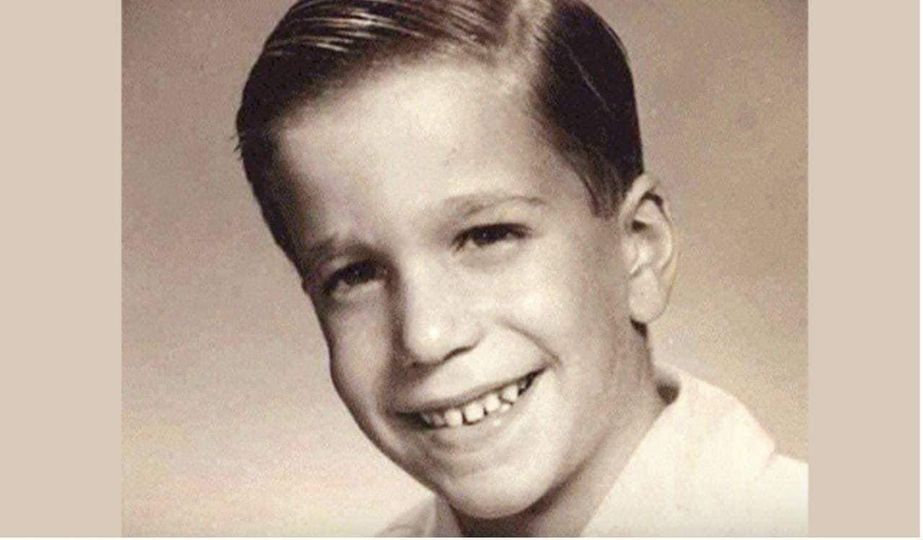Henry Winkler, best known for his iconic portrayal of “The Fonz” on Happy Days, didn’t always have the glamorous life associated with Hollywood stardom. Far from it—his childhood was filled with challenges that might have broken a lesser spirit. Winkler, born to Jewish immigrant parents who fled Nazi Germany, faced significant struggles growing up due to an undiagnosed learning disorder that would eventually shape his life in ways no one could have imagined.

Winkler’s difficulties with reading became evident early on, but back in the 1950s, awareness of learning disabilities like dyslexia was almost non-existent. His parents, unaware of the reason behind his challenges, would often call him “dumb” or even worse, use the German term “Dummo Hund,” meaning “dumb dog.” They couldn’t understand why their bright child struggled to read even simple words, and their lack of comprehension turned into impatience and criticism. This negativity was compounded by teachers and classmates who also underestimated him, often labeling him as slow or lazy. The constant barrage of disparagement significantly affected Winkler’s confidence and made school an unbearable experience.
Despite the hardships and the emotional scars of being misunderstood, Winkler never abandoned his dreams. He was determined to make something of himself, and he knew he wanted to be an actor. The odds were against him—after all, what struggling reader could expect to memorize scripts, let alone become a Hollywood star? But Winkler’s passion for acting was unstoppable. He applied to 28 colleges before finally being accepted by two, and eventually, he made it into the prestigious Yale School of Drama. It was there, during an improvised Shakespearean monologue, that Winkler’s innate talent began to shine brightly. His ability to perform, despite his difficulties, opened doors he had long dreamed of.
As Winkler transitioned into professional acting, he faced ongoing challenges with dyslexia, which wasn’t formally diagnosed until he was in his early thirties. This disorder not only impacted his ability to read but also affected his coordination, which made some aspects of acting especially difficult. Even at the peak of his career, while portraying the effortlessly cool Fonzie on Happy Days, Winkler was secretly struggling behind the scenes. Memorizing lines was a Herculean task, but Winkler adapted. He would memorize by listening to recordings of the script, and in auditions, he relied on his charm and humor to hide any gaps in his reading ability. His quick wit became his shield, allowing him to embody the “essence of the character” and leave lasting impressions.
Interestingly, a pivotal moment came when his stepson, Jed, was being tested for dyslexia. At 31 years old, Winkler recognized the similarities between Jed’s struggles and his own childhood experiences. It was this realization that finally gave a name to what had held him back for so long. Identifying his condition brought both relief and a sense of clarity, as Winkler could now understand his lifelong difficulties not as a reflection of his intelligence, but as a condition that could be managed.
Winkler’s post-Happy Days career was as diverse as it was fulfilling. He took on a variety of acting roles, refusing to let himself be pigeonholed as “just the Fonz.” Despite being offered the lead in Grease, he turned it down to avoid being typecast, a decision that allowed him to explore broader acting opportunities. Beyond acting, he also turned his creative talents to producing, notably playing a key role in bringing the MacGyver series to life. His ability to continually reinvent himself in an industry that often typecasts its stars is a testament to his talent and perseverance.
Though his career had ups and downs—transitions that many actors find difficult—Winkler’s determination never wavered. His talent and hard work always shone through, proving that success is not just about ability but also about tenacity. He never let his dyslexia define him or limit what he could achieve.
Today, Henry Winkler is beloved not only for his acting chops but also for his warmth and humor. He has embraced his role as an advocate for children with learning disabilities, speaking openly about his own experiences and co-authoring a series of children’s books featuring a protagonist who struggles with dyslexia. Winkler’s story is one of resilience—a man who, despite being unfairly labeled as “dumb,” grew into a beloved public figure admired by millions.
Henry Winkler’s journey is proof that our challenges do not have to dictate our future. With determination and a belief in oneself, even the most daunting obstacles can be overcome. His life story is an inspiring reminder that every individual has unique strengths, and sometimes, what appears to be a limitation is just the start of an extraordinary journey.





